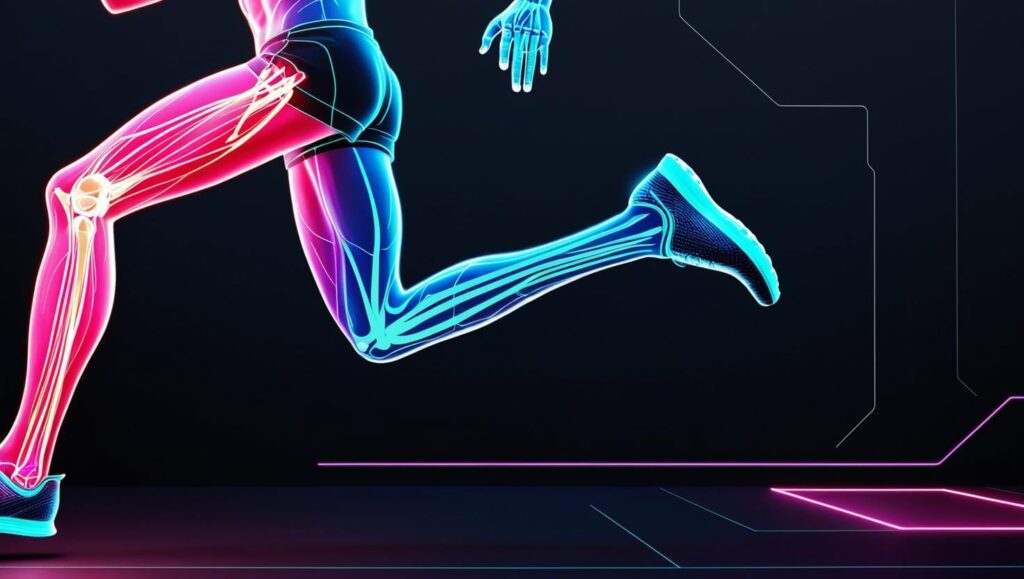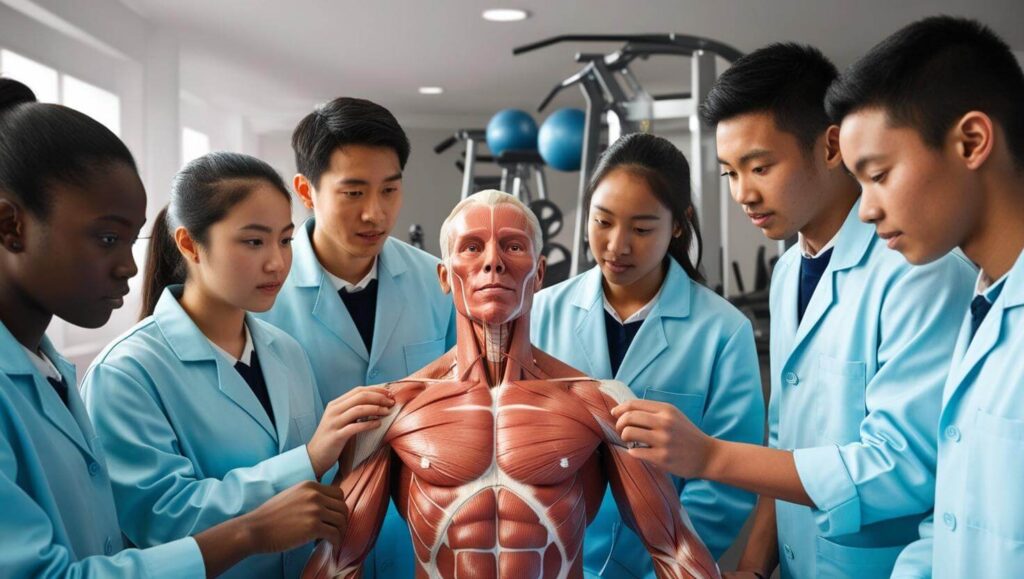
Introduction
In a world where health and wellness are priorities, exercise science has emerged as a vital field bridging human biology, movement, and performance. Whether you dream of training elite athletes, rehabilitating injuries, or promoting workplace wellness, exercise science courses equip you with the knowledge and skills to thrive. But what exactly do these programs entail, and where can they take your career? Let’s break it down.
What Are Exercise Science Courses?
Exercise science is the study of how the human body responds to physical activity. It combines principles of biology, chemistry, psychology, and biomechanics to answer questions like:
- How does exercise improve heart health?
- What training methods optimize muscle growth?
- How can we prevent sports injuries?
These courses prepare students for careers in fitness, healthcare, research, and beyond.

Core Courses You’ll Take
Most exercise science programs blend classroom learning with hands-on labs and internships. Key subjects include:
1. Human Anatomy & Physiology
- Focus: Structure of muscles, bones, and organ systems.
- Why It Matters: Understanding the body’s mechanics is critical for designing safe workouts or rehab plans.
2. Biomechanics
- Focus: How forces impact movement (e.g., running gait, lifting form).
- Why It Matters: Helps correct imbalances and prevent injuries.
3. Exercise Physiology
- Focus: How the body adapts to exercise (energy systems, VO2 max, muscle recovery).
- Why It Matters: Learn to tailor programs for weight loss, endurance, or strength.
4. Sports Nutrition
- Focus: Role of macros, hydration, and supplements in performance.
- Why It Matters: Nutrition fuels results—whether for athletes or everyday clients.
5. Injury Prevention & Rehabilitation
- Focus: Techniques to reduce injury risk and restore mobility.
- Why It Matters: Essential for careers in physical therapy or athletic training.
Specializations to Boost Your Expertise
Many programs offer electives to align with your career goals:
- Strength & Conditioning: Train athletes for peak performance.
- Clinical Exercise Physiology: Work with chronic conditions (e.g., diabetes, heart disease).
- Aging & Mobility: Design programs for older adults.
- Corporate Wellness: Promote health in workplace settings.

Top Career Paths in Exercise Science
- Personal Trainer: Design fitness plans for clients.
- Physical Therapist Assistant: Aid in injury rehab (requires additional certification).
- Sports Coach: Optimize athletic performance.
- Cardiac Rehab Specialist: Guide heart patients to recovery.
- Wellness Coordinator: Implement corporate health programs.
Job Outlook:
- Exercise physiologist roles are projected to grow 10% by 2032 (U.S. Bureau of Labor Statistics).
- The fitness industry is valued at $35+ billion, with rising demand for certified professionals.
How to Choose the Right Program
- Accreditation: Look for programs endorsed by ACSM or NSCA.
- Hands-On Experience: Prioritize schools with labs, internships, or partnerships with gyms/hospitals.
- Faculty Credentials: Seek professors active in research or industry.
- Certification Prep: Some programs align with credentials like NASM-CPT or CSCS.
Online vs. In-Person Programs
| Online | In-Person |
|---|---|
| Flexible schedule | Hands-on labs |
| Theory-focused | Networking opportunities |
| Ideal for working pros | Better for clinical skills |
Top Schools for Exercise Science
- University of Florida: Renowned for sports performance research.
- Ohio State University: Strong focus on clinical applications.
- Texas A&M: Specializes in strength and conditioning.
Is Exercise Science Right for You?
This field suits those who:
- Love fitness and human biology.
- Enjoy problem-solving (e.g., troubleshooting a client’s plateau).
- Want to make a tangible impact on health outcomes.
Final Tips for Success
- Pair with Certifications: Boost employability with credentials like ACE, NASM, or CSCS.
- Network Early: Attend industry conferences or join organizations like ACSM.
- Gain Experience: Volunteer at gyms, clinics, or sports teams while studying.
Ready to Get Started?
Exercise science courses open doors to a rewarding career where science meets passion. Whether you’re helping a marathoner shatter records or a senior regain independence, this field empowers you to transform lives—one rep, step, or stretch at a time.
Explore More:
- How to Become a Personal Trainer: A Step-by-Step Guide
- Top 5 Certifications for Fitness Professionals
Have questions or goals? Share them in the comments below!


